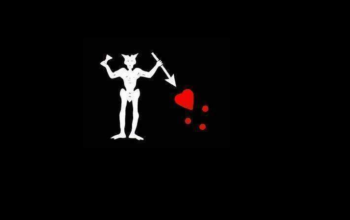We’ve all seen the reports from far-away places: investigative journalists, often clad in khaki safari jackets or other types of practical apparel that allows them to become a part of their surroundings, reporting the news from “on the scene” in a war-torn country as the sounds of gunfire punctuate the stillness of the night.
Or, even closer to home, we see one man or woman holding a microphone during the midst of a protest march, as we’ve seen in recent weeks in a number of cities — and telling us, the viewers or online audience, the details of what’s taking place behind or around them.
These scenes have become commonplace, as journalists dedicated to their craft often put themselves in harm’s way so that they’re able to report the news with as much visual impact as possible. Even if they’re not in the midst of a dramatic event, they’re still there when things are happening. In a way, they represent us, seeking out facts and asking the questions we might ask, given the opportunity.
Back in 1990, legendary — some might say infamous — flamboyant and outspoken Canadian hockey commentator Don Cherry angered many with his negative comments about hockey players from other nations. Some were greatly turned off by his words, which were perceived in a number of circles to be both xenophobic and highly inappropriate. In 2019, he even lost his job as a result. So, why did he make those comments in the first place? Surely he had to know that he’d be taken to task for them.
Enter Eric Malling, a Canadian investigative journalist who reported between the 1970s and late 1990s, uncovering a number of government scandals, giving his attention to questionable practices taking place at a variety of Canadian companies and even busting the CIA’s alleged propaganda campaign that led to the Angolan Civil War in 1975. Malling did a report on Cherry on CBC’s The Fifth Estate and asked him, point-blank and on-camera, about his feelings toward people from foreign countries. Cherry’s responses offered yet one more instance of why investigative journalism, and, specifically, Eric Malling’s role in informing his fellow countrymen, were important.
The tradition of digging deep, uncovering important details and telling meaningful stories continues today with journalists who still do jobs that many civilians wouldn’t or couldn’t. It takes commitment, persistence and often, nerves of steel, to go toe-to-toe with public figures or report from the scene of a crisis. With today’s 24-hour news cycle, they do it every day. Remember when Canadian journalist Arthur Kent, reporting for NBC News, gave on-camera reports from the battlefield during the Persian Gulf War in 1991 or when numerous reporters were stationed at Ground Zero in the aftermath of 9/11?
We most recently saw in June after the event in which a Minneapolis man lost his life. A series of protests took place, first in Minneapolis, then in other parts of North America including many cities in Canada. Although many of the marches and demonstrations started out peacefully, a number of them were quickly marred by violence and vandalism.
In the heat of these moments, many journalists embedded themselves in the crowds, asking questions of participants. In some cases, the journalists’ attempts to gather information and tell the story were rebuffed by participants, but in most, the savviest of reporters were able to not only tell but show the stories they were covering, often as they were taking place.
Buildings were burned to the ground, businesses were vandalized, police cars were attacked, defaced with spray paint and set on fire. This is not a situation many people would want to witness up-close, but the journalists in the streets were busy gathering the facts and witnessing the worst of the chaos.
Eric Malling is one of many journalists who have lived this professional life over the years, going from story to story and embedding themselves where news is taking place and history is being made.
Journalists represent us in many ways by going to the scene, watching and observing. They also interview sources, witnesses and spokespeople. They ask questions. And they tell their audiences exactly what was going on and how it might affect their lives.
News is being made even as you read this. Tomorrow, something else will happen. And when news happens, journalists will be on the job, finding the people who own the stories and getting them to tell them in their own words. They’ll ask direct questions and not be deterred by non-answers. And they’ll continue to keep their audiences informed as they present the facts.
Related Posts












